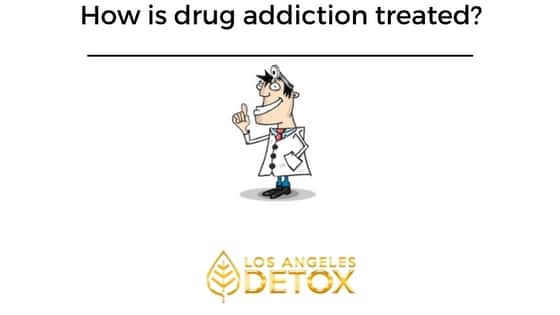
Drug addiction can be treated in many different ways. Because of the nature of drug addiction, short-term, one-time addiction treatment is usually not enough. Most people get the best results when they enter a long-term addiction treatment program that involves the family and friends of the drug addict.
The type of treatment or combination of treatments will be different for everyone. There are several evidence-based approaches to treating addiction. A lot of drug addiction treatment programs include behavioral therapy (such as cognitive-behavioral therapy or contingency management), medications, or a combination of both medication and behavioral therapy
Alcohol addiction commonly co-occurs with other drug addictions, like addiction to prescription pills.
Treatments for prescription drug abuse tend to be similar to those for illicit drugs that affect the same brain systems. For example, Buprenorphine used to treat heroin addiction can also be used to treat addiction to opioid pain medications. Addiction to prescription stimulants, which affect the same brain systems as illicit stimulants like cocaine, can be treated with behavioral therapies, as there are not yet medications for treating addiction to these types of drugs.
Most treatment programs use an individual and group therapy approach. Group therapy helps establish behavioral contingencies that promote abstinence and a drug-free lifestyle. Evidence-basedAcamprosate treatment approaches like behavioral therapy and contingency management are being adjusted to work in a group therapy environment to save time and money.
A combination of behavioral therapies and medications generally appears to be the most effective way to treat drug addiction.
The above issues should be addressed immediately upon entering an addiction treatment program. The best treatment programs provide a combination of therapy and other services (other services include appointment scheduling, taxi service, vocational help, and more to meet the patient’s’ needs). Psychoactive medications, such as antidepressants, anti-anxiety agents, mood stabilizers, and antipsychotic medications may be critical for treatment success when patients have co-occurring mental disorders such as depression, anxiety disorders (including post-traumatic stress disorder), bipolar disorder, or schizophrenia. In addition, most people with severe addiction abuse multiple drugs and require treatment for all substances abused.
How long does cocaine stay in your system – and why do some people test…
It’s a sweet, syrupy mixture that has been celebrated in rap music for decades. But…
Meaningful discussions of LGBTQ+ and addiction must address the unique challenges faced by members of…
Alcohol abuse can put a person at risk for a broad scope of serious health…
In certain circumstances, stimulants such as dextroamphetamine and Adderall can help a person experience improved…
SMART Recovery is an alternative to AA and NA for people who are looking for…
This website uses cookies.